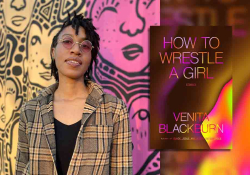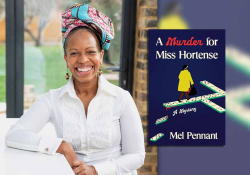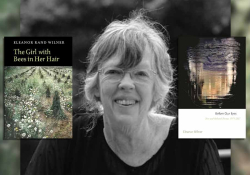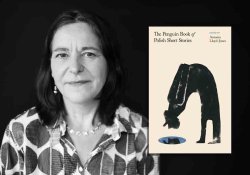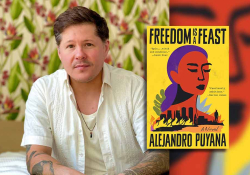Writing as a Cocoon of Absolute Freedom: A Conversation with Pajtim Statovci and David Hackston
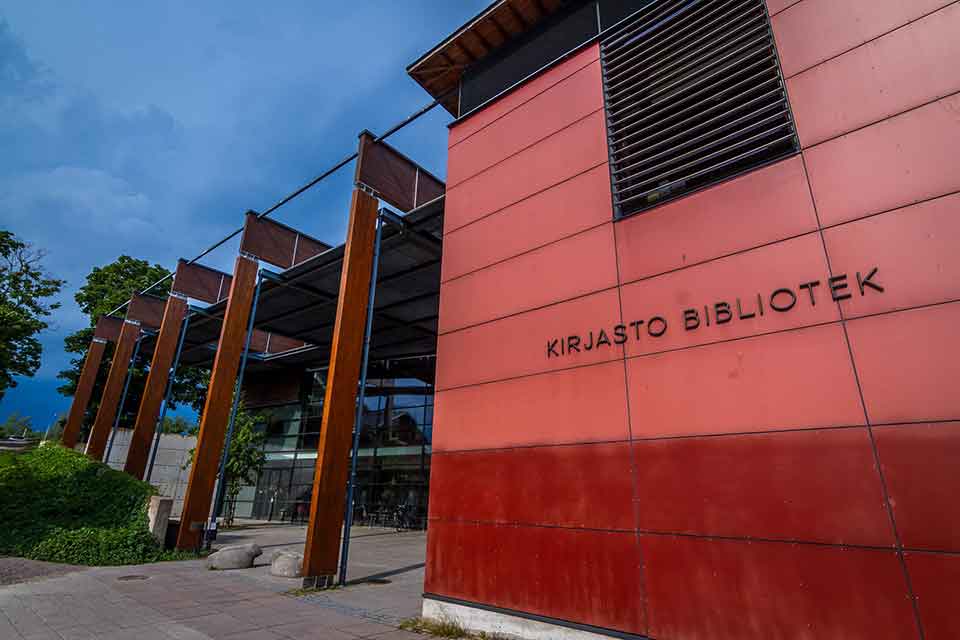

At thirty-two, Pajtim Statovci (b. 1990, Kosovo) is widely considered one of Finland’s leading young novelists. His three novels—My Cat Yugoslavia (2014), Crossing (2016), and Bolla (2019)—have all won literary awards and have been or are currently being adapted for stage productions. Statovci writes in Finnish, the language of the country that has been his home since his Kosovar Albanian family fled Serbian repression in 1992. All three novels have been translated into English by David Hackston, whose 2019 translation of Crossing won the Oxford-Weidenfeld Prize.
In all three novels, Statovci’s characters work to forge identities for themselves after the trauma of displacement and in the face of prejudice. The male protagonists all have Albanian roots and are acutely aware of traditional gender roles and the paramount importance of marrë—shame—even as they engage in what their extended families would likely categorize as transgressive sex. They all struggle to navigate a range of contradictory pressures and sentiments, as they navigate the stereotypes, constraints, and expectations of which straight, cisgendered citizens of prosperous, democratic countries are often oblivious.
I became aware of Statovci’s work while on research leave at the University of Helsinki’s Collegium for Advanced Studies. I was able to meet with both author and translator in early August 2022, and the following text is compiled from our separate conversations, and their generous responses to follow-up questions.
Keith Brown: The University of Helsinki library catalog offers as search terms for Bolla (in Finnish and Swedish) marriage, love, passion, desire, jealousy, homosexuality, homelessness, and the Kosovo War. Do these resonate for you? Would you add anything else?
Pajtim Statovci: I might add war and displacement, racism, identity, and mental illness.
David Hackston: All three novels center on exile or displacement. They also offer vivid depictions, and subtle diagnoses, of forms of domestic violence. It’s also striking that the internet features prominently, as a location where the forms of deception (including self-deception), self-presentation, and the privileging of surface over substance are obvious and overt. Bolla in particular reminds us that on the internet, you can be whomever you want.
Brown: Pajtim, you’ve related in other interviews how the start point for Crossing was your own experience as a seven-year-old, starting school, and wanting to conceal or transform where you were from, to avoid classmates’ pity. All three novels narrate different kinds of intolerance, racism, or suspicion toward Kosovar characters. Are those also rooted in your own, or your family’s, experience?
Statovci: Finland doesn’t have that long a history with immigration, and people who fled the former Yugoslavia were actually among the first who came here, so there was a lot of prejudice in every aspect of the society, in schools, in workplaces, in the streets, everywhere. And I’ve tried to make that visible in all my work and especially in Bolla, in the scene where a Kosovar mother goes to the Finnish school to talk about how the school is acting toward her children, and always blaming their background for the troubles they have with other students, and always saying that they are burdened by multilingualism, or particularly by multiculturalism. What she tries to do is convince the schoolteachers that by reminding her kids constantly that they are different, they start to gradually believe that they are different, and that is why they might act out.
When you come from outside the Western world you are not seen as an equal immigrant as if you moved from the US, France, or Germany, for those countries don’t have the same reputation of violence, or the same history of war or conflict or restlessness, that Kosovo has. I was seen as this “war child,” instead of as a creative individual who was equally capable of this or that. My background was seen as a restraint of sorts, but my Swedish or German peers didn’t suffer from the same problem.
I was seen as this “war child,” instead of as a creative individual who was equally capable of this or that.
Brown: What helped you overcome that?
Statovci: I read extensively as a child. It was sort of a secret: I was never really encouraged to read books in my household. I rarely even borrowed a book from a library, because doing so somehow felt out of place. I guess I was scared that I would “get caught” reading something I wasn’t supposed to, or provoke people around me. I don’t know. But I went to the library to read. A gorgeous new library opened in Porvoo, the town where I lived, when I was around ten years old. It was this fascinating, beautiful building with big windows facing a park that was called “book park.” It was the most mesmerizing thing I had seen in a long while. I picked up a book from the shelves and then found a table, sat down, read, and returned the book, and then continued the next day from there. I read in Finnish, as the library didn’t carry any Albanian books. Once I learned English, I started reading in English too, probably at the age of twelve or thirteen or so.
Brown: So your engagement with and knowledge of Albanian myths, legends, and customs—like Doruntina, the kulshedra (giant serpent), and the ethnographically rich accounts of weddings, funerals, and rituals of hospitality—didn’t first come from reading?
Statovci: When your culture, the language you speak, the way you dress and look make people uneasy, you tend to cling to your traditions. I think this is what happened to my family, and this is partly the reason I was told so many stories about Kosovo and Albania. My parents were so worried that I would forget about where we’ve come from. I was always intrigued by these stories and their backgrounds, and how different storytellers impacted and edited them. I specifically asked my family members (parents, grandparents, aunts, and uncles) to tell stories to me. And depending on who was telling them, and where and when, I noticed that they were told to me in different ways. Someone would add more spices, or someone would change the names of the protagonists, and then someone would say that’s not how the story goes.
That’s the beauty of folklore. You get to make it a story of yourself and about yourself too, and in Crossing it’s through these stories that work as metaphors for the story, for the shapeshifting nature of the protagonist.
That’s the beauty of folklore. You get to make it a story of yourself and about yourself too.
Brown: Your characters share that fascination and joy with storytelling—one example is Bujar’s take on the story of Doruntina, in Crossing. Do you feel some obligation, as a member of the Kosovar diaspora, to engage with, or contribute to, some category of “Albanian literature”?
Statovci: My writing is not a representative act. It’s just too much pressure for a fiction writer. What I try to do with my work, I guess, is give an example of certain kind of people in a certain time in history. I am not comfortable with being a representation, or my work being representative. You don’t really sign up for that. However, you—along with your work—will still often be received that way, especially if you write from and about a marginalized territory. I am comfortable with being an example.
I’ve read Albanian literature, written both inside and outside the Albanian-speaking world. The best-known is Ismail Kadare, and I’ve enjoyed his work, including Doruntine. The legend is present in my second book too. I think one of the reasons I was so drawn to books as a child is that I was looking for something, or someone. Someone who is breaking the rules. Perhaps a queer Albanian character? Not one from the magical folklore, but one from reality. But it didn’t exist, and if I had had a book like that in my youth, it would’ve been life-changing to me. It really would have. So I guess I needed to write myself into the world in some way. And by this I am not saying that my books are autobiographical; of course, I make use of a lot of autobiographical elements too. Simply put, I just want to explore the human mind in this setting, in this trauma that has forever changed the lives of generations of Albanian people. I want to see more books published about it. It’s important.
Brown: What was the trigger to write your first novel, My Cat Yugoslavia?
Statovci: I was at university studying literature and also working in a supermarket. I was standing by a trolley in the freezer aisle, stocking frozen pizzas. I remember I had been thinking of dropping out of the university, since I felt so out of place there. I just realized in that moment that my whole life I had believed that I was less worthy, or less smart, or less capable of doing things. It got to the point where I was scared of dreaming of being a writer, a lawyer, a doctor. It was so engrained in me that people like me would take a different path in life, go to a vocational school, become grateful, tax-paying citizens and participate in the society that way.
Clearly, back then I did suffer from internalized racism and hatred, and I had learned to believe by past experiences that I probably wouldn’t amount to much in my life. That was such a liberating experience for me to recognize and name that feeling. And then something just came over me, and I thought that something needs to happen, and after that shift I just said okay, it’s time to sit down and write this book that I’ve had in my mind for many years now. So I went home and started writing.
Since then, I’ve learned I really have to be inspired, or have something to say, to be able to write. Where I am at my most creative and authentic is when I’m alone in front of my computer, writing. No one can touch me there; it’s like a cocoon of absolute freedom. I can close my eyes and imagine a new world, go after different points of views, invite myself to understand even people with whom I don’t see eye to eye.
No one can touch me there; it’s like a cocoon of absolute freedom.
Brown: David, all three of Pajtim’s novels have won wide acclaim in Finland, including the 2014 Helsingin Sanomat Literature Prize for best debut for My Cat Yugoslavia, the 2016 Toisinkoinen Literature Prize for Crossing, and the 2019 Finlandia Prize for Bolla. Why have these books had such an impact in Finland?
David Hackston: A lot of Finnish literature represents what I’d call “main clause prose.” It is made up of short, declarative sentences. Combined with some of the grammatical characteristics of Finnish, this can produce a jarring, clunky effect. For example, because pronouns are not gendered in Finnish, some authors who adopt this main clause style choose to repeat a character’s name in each clause. Or they use nouns that would be literally translated as “the man” or “the woman.” By contrast, Statovci writes long sentences—especially when he deploys what I’ve described as “rhapsodic prose” where a character goes off on a tangent, prompted by an event or a simple thought into a long stream of consciousness. Such passages are challenging for a reader and especially for a translator, but so rewarding.
Statovci: This is a tough question. I’m sure many would say it has something to do with the themes of my work as well as the language, and I can appreciate that. I am very particular when it comes to language. I also enjoy books that are not too explanatory, that don’t say much about why this person is acting like this. The biggest reward of reading fiction for me is the joy of interpretation, and approaching a certain story from different directions. When a book overexplains, it can feel like the experience of reading is diminished.
In Finnish, there’s a verb, vesittää, that describes when a dish is diluted or watered down to make it more easily digestible. But the texture is less distinctive and the flavor less intense. So in reading, sometimes the bigger reward comes from not knowing why some characters are acting in this way. So I guess I take the rule “show, don’t tell” too seriously when I write. However, I don’t think showing and telling rule each other out. I just want to leave the reader with as much as possible to chew on, an opportunity, perhaps, to find something they’re looking for.
Brown: A number of reviewers, including Gabrielle Bellot, have emphasized how your characters and their dilemmas resonate for LGBTQ+ readers worldwide. In the UK and the US, we’re now seeing an upsurge in efforts to silence, stifle, or marginalize such voices. Will this impact your writing, going forward?
Statovci: As a writer, you have to be so sensitive to shifts of the world, to politics, the shift of art. Literature is a slow art form; sometimes you’re old by the time your new book comes out. Ideals, what we discuss in the world, sometimes they change overnight.
That said, I really do believe that a human being is many things, many identities at once, at the same time. I think one goes through a collection of different identities throughout one’s life, I believe in constant change. I believe in learning and in an individual’s right to define themselves again, and again and again, in the way they see fit. I like to say my books are a celebration of self-definition. In my work, nothing is set in stone, people rarely draw any kinds of lines between themselves. Even the discussion of the character’s sexuality is left to a bare minimum. Sometimes their lines of identity and what it is to be a human change so fast, you don’t feel comfortable making an explanation of yourself in every situation.
I feel this time is very challenging for many people, because it’s almost as if there is this pressure to choose a group, and where you stand, and in which group you belong. Not all people are comfortable putting themselves into a certain box, or they just can’t ever find themselves, and there needs to be space for that too. Twenty to thirty years ago we were saying it doesn’t matter where you come from and who you are, you can be anything, and your sex, your orientation, your religion, your cultural background, your native language. . . . It doesn’t matter, you’re your own, beautiful individual as you are, who speaks for yourself.
Sometimes I feel like it matters again, where you come from, what you do, what you believe in. And I’m not saying this direction is good or bad, but it’s just interesting how the ways we see each other multiply and change. Everything changes. This belief carries the way I see the world, both real and fictional.
August 2022
Editorial note: A review of Bolla is forthcoming in the January 2023 issue of WLT.
 Pajtim Statovci was born in Kosovo to Albanian parents in 1990. His family fled the Yugoslav wars and moved to Finland when he was two. He holds an MA in comparative literature and is a PhD candidate at the University of Helsinki. His work has been translated into over twenty languages.
Pajtim Statovci was born in Kosovo to Albanian parents in 1990. His family fled the Yugoslav wars and moved to Finland when he was two. He holds an MA in comparative literature and is a PhD candidate at the University of Helsinki. His work has been translated into over twenty languages.
 David Hackston is a British translator of Finnish and Swedish literature and drama. He graduated from University College London with a degree in Scandinavian studies and now lives in Helsinki where he works as a freelance translator.
David Hackston is a British translator of Finnish and Swedish literature and drama. He graduated from University College London with a degree in Scandinavian studies and now lives in Helsinki where he works as a freelance translator.





